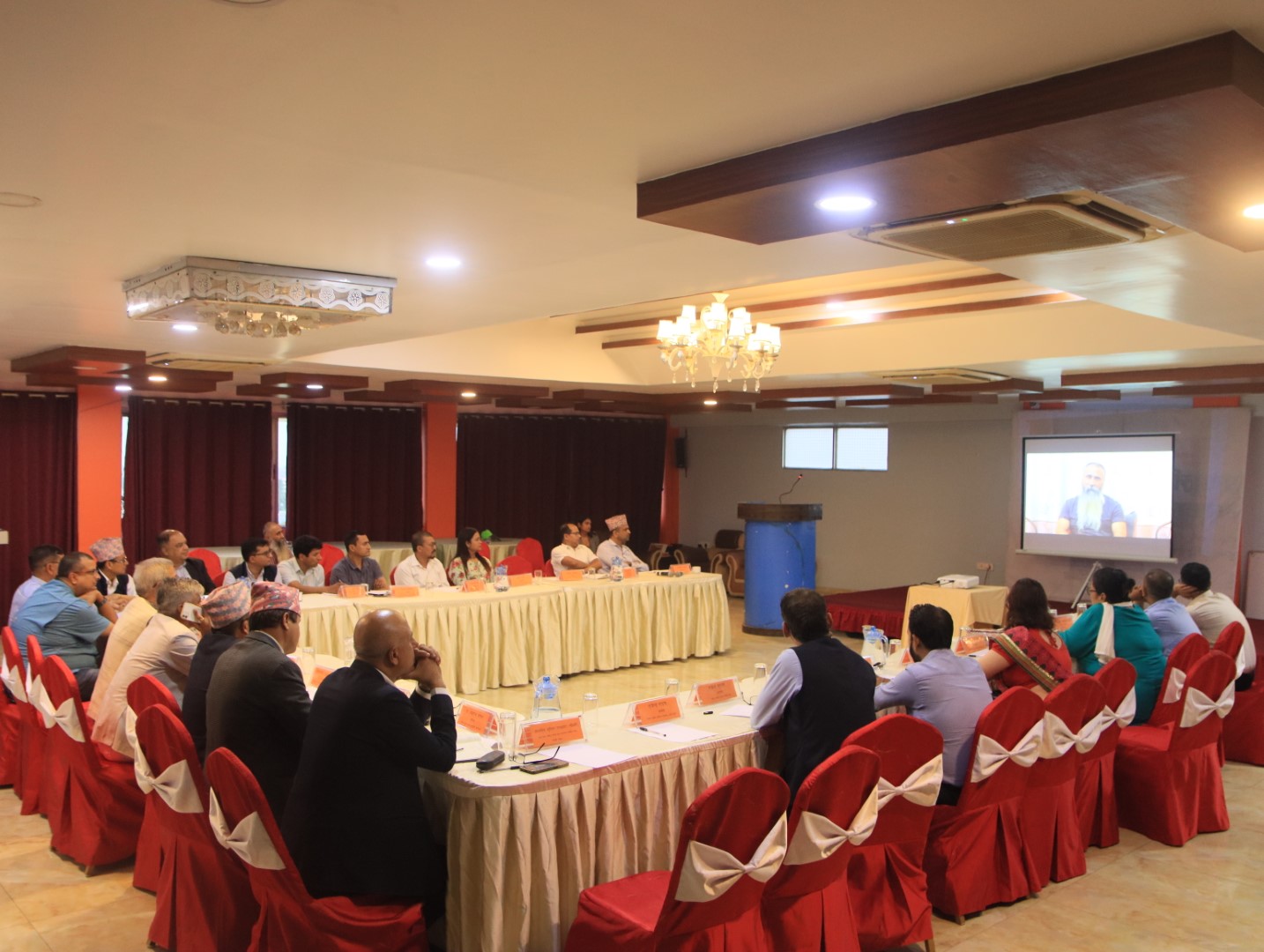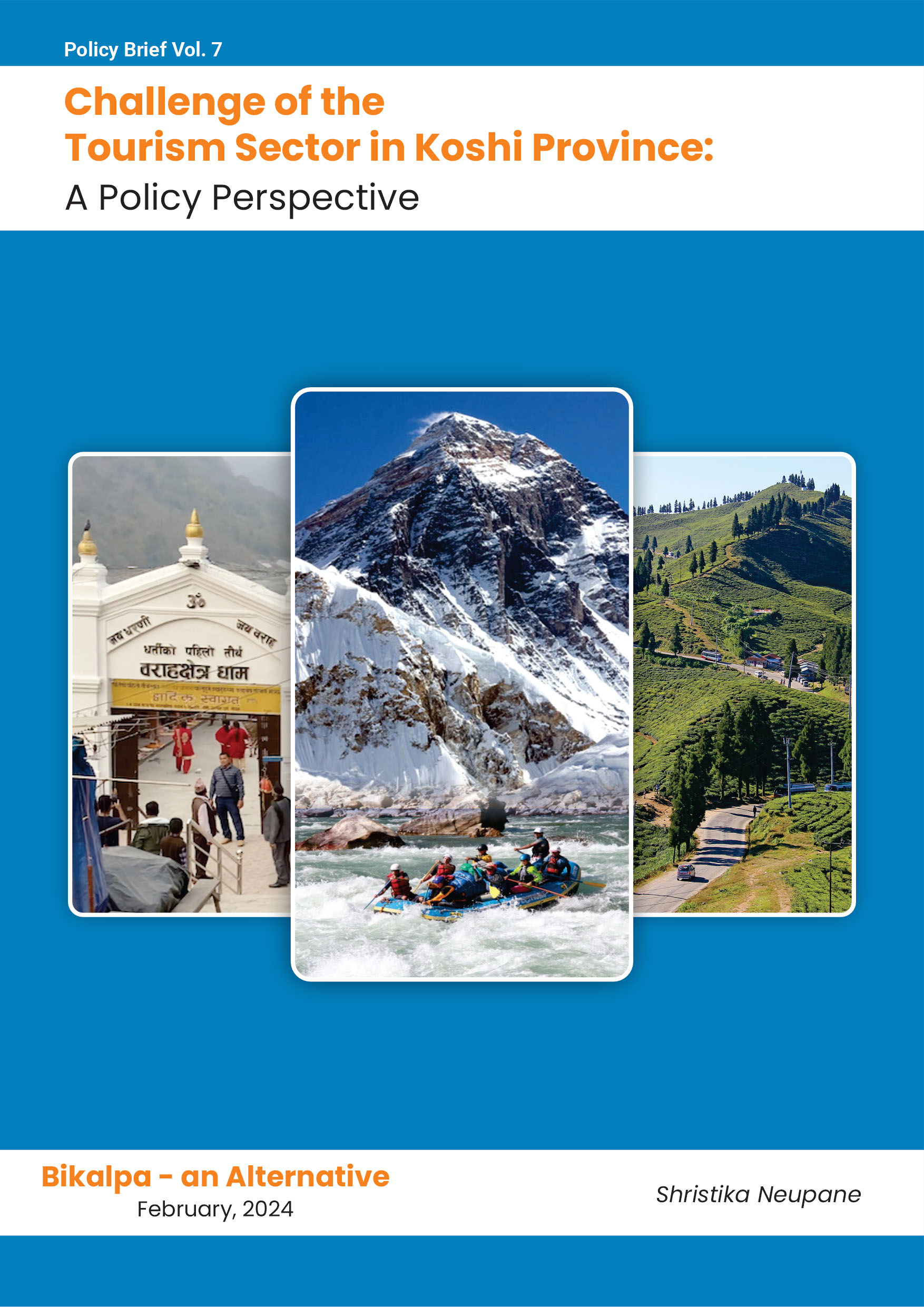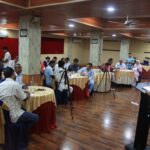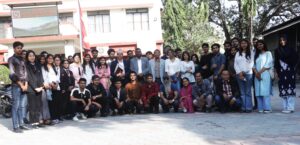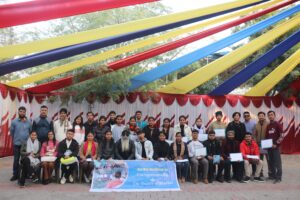Bikalpa an Alternative conducted the Biratnagar Leaders Circle Meet at Big Hotel, Biratnagar on the 5th of May 2024. The objective of organizing such meetings is to deliberate discussions between stakeholders on public policy issues and agendas of economic growth by forming a closed informal circle comprising decision-makers, private sector leaders, government officials, and civil society members to find solutions to the current problems.

The program was organized in the esteemed presence of the Chief Minister of Koshi Province Hon. Kedar Karki as the chief guest and was chaired by the Chairman of Bikalpa an Alternative Dr. Bhesha Prasad Dhamala. The Internal Law and Affairs Minister Hon. Shamser Rai was the special guest of the event. Likewise, there was a gracious presence of Hon. Rupesh Koirala, Attorney General of Koshi Province, Mr. Nagesh Koirala, Mayor of Biratnagar Metropolitan City, and Mr. Kedarnath Sharma, Chief Secretary of Koshi Province.
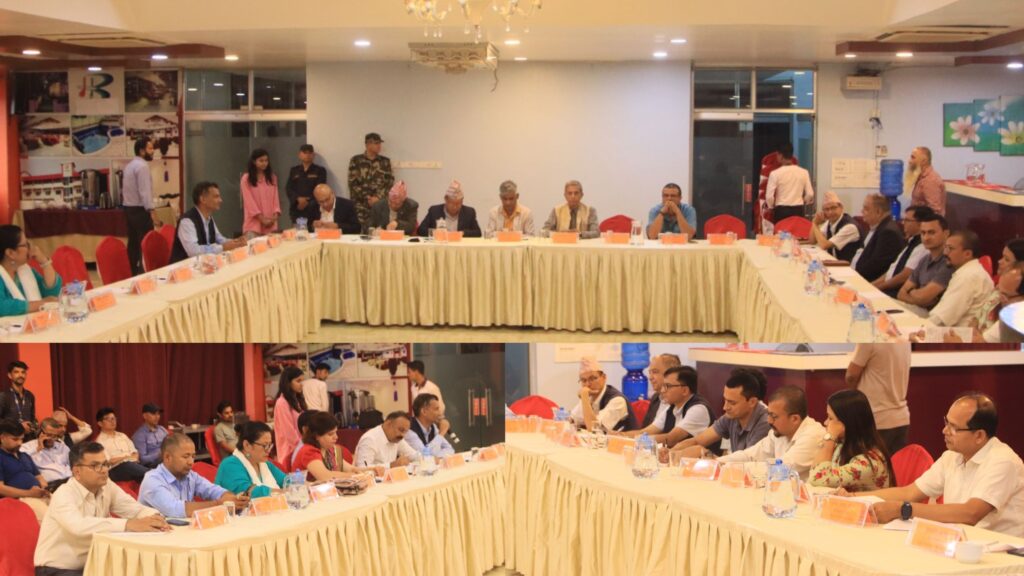
Altogether 23 stakeholders from various realms like Ministries, Provincial Investment Authorities, Business Associations, Law firms, and News media convened to deliberate on strategies aimed at promoting a business-friendly atmosphere in Koshi province. The event highlighted how crucial it is for the public and private sectors to work together to improve the province’s economic prospects.
The event commenced with a short welcome speech by Miss. Shristika Neupane, a researcher at Bikalpa an Alternative. The floor was handed over to the Director of Bikalpa an Alternative Mr. Basanta Adhikari for sharing objectives and moderating the discussion. Before the discussion, two short videos were played for setting the context of discussion prepared by Bikalpa on the discussion agenda. The first video emphasized the significance of giving provincial governments more autonomy in fostering a business-friendly environment by delegating the required authorities from the central government. The next was the commentary video that covered five components of Ease of Doing Business, in which Bikalpa is conducting its ongoing research.
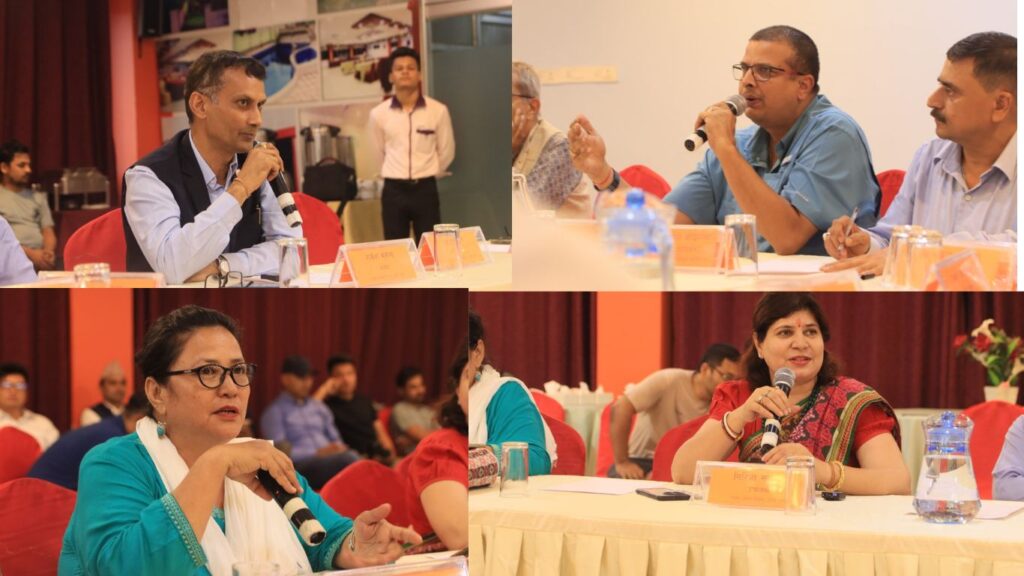
Following that, the floor was open for discussion. The president of the Chamber of Industries Morang, Mr. Rakesh Surana, criticized the management of funds allocated for skill development. He also highlighted concerns such as load shedding (power cuts), and emphasized the importance of tourism and agriculture industries. Furthermore, he demanded the establishment of conferences and exhibition halls to showcase the products of small industries.
After that, the Mayor of Biratnagar Metropolitan City, Mr. Nagesh Koirala emphasized the importance of Biratnagar as an important gateway for Indian citizens from Bihar state entering the province. He also stressed the potentiality of the medical hub and alcohol tourism in Biratnagar. He called for a constructive dialogue with the business association to address grievances and collaborate in business development initiatives.
Following that, the Director General of the Chamber of Industries Morang, Mr. Chudamani Bhattarai advocated for nurturing local manufacturing capabilities through specific product identification and conducting value chain analysis to enhance competitiveness. He also raised concerns about the compliance burden faced by business operators and called for streamlined oversight processes. Then, Mr. Sambhu Prasad Shah, an 8th-level officer of the Ministry of Industry, Agriculture and Cooperatives, criticized the blanket policies applied to all industries. He argued for customized approaches that recognize the needs and capacities of different size industries. He also emphasized the advantages of encouraging collaboration between small and large industries.
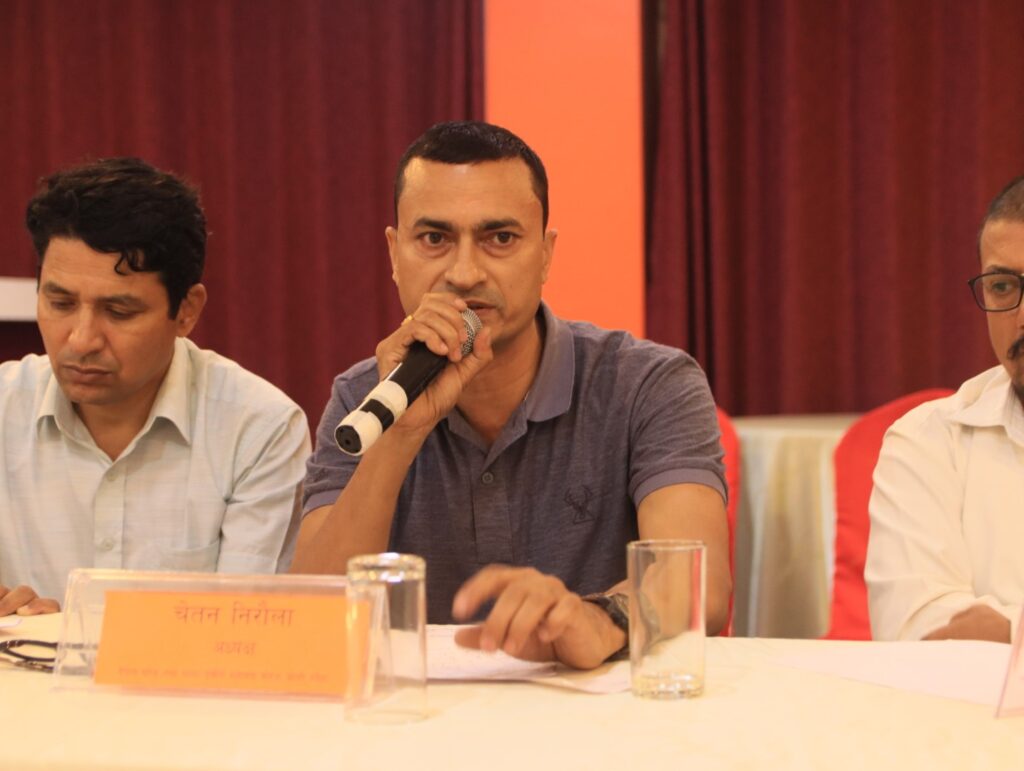
After that, the President of the Federation of Chamber of Cottage and Small Industries, Mr. Chetan Niraula shared about the positive impact of government support programs and subsidies for small and micro industries. Moreover, he called for strategic linkages between local industries and tourism to maximize the economic gain from both sectors. Mr. Pawan Sarda, President of Confederation of Nepalese Industries, Koshi Province, underscored the importance of investing in youth skills development and urged the policymakers to reconsider excessive import duties which have hindered economic competitiveness.
Mrs. Girija Sarda, Vice President of the Confederation of Nepalese Industries, Koshi Province, stressed infrastructural development and investment in upgrading transportation facilities within the province. Following that, a member of the Women Entrepreneur’s Committee, Mrs. Sunita Charang brought attention to challenges faced by women entrepreneurs and proposed the establishment of industrial homes tailored for small-scale enterprises.
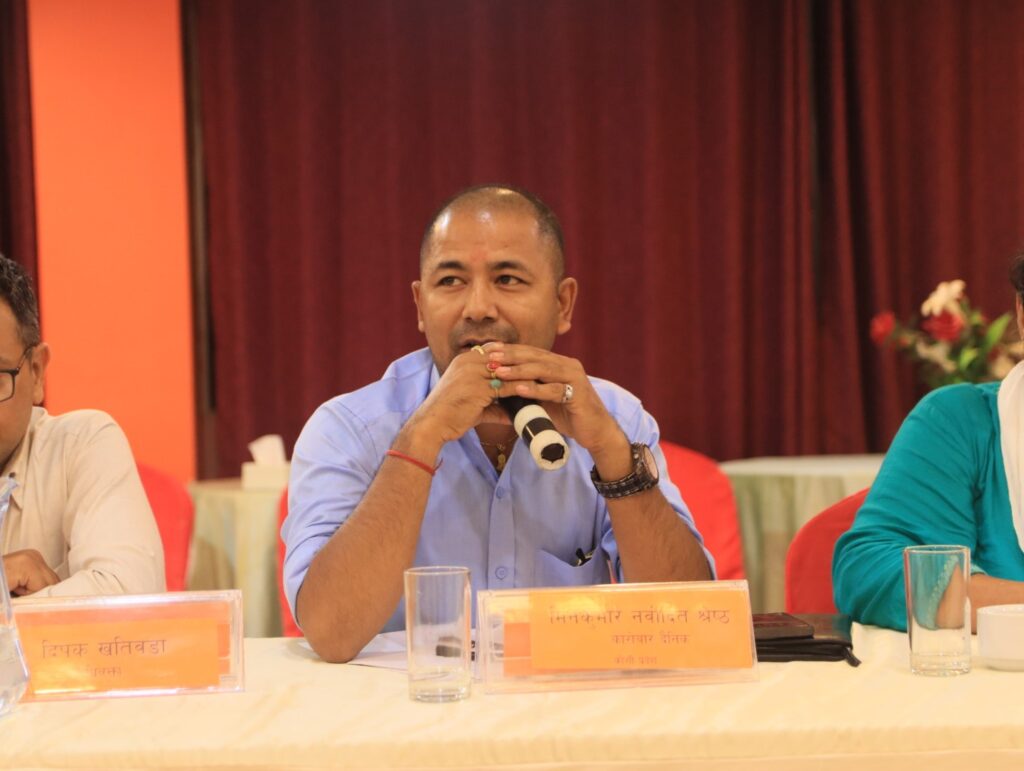
Mr. Min Kumar Nabodit, Koshi Province’s head of Karobar Daily, highlighted the importance of strengthening the linkage between agricultural producers and market storage facilities. The significance of investment-friendly laws and policies in attracting investors was then stressed by Advocate Mr. Dipak Khatiwada. He underscored the need for regulatory reforms and policy incentives to spur private-sector investments. Miss Shruti Sharma, a women entrepreneur then advocated for reducing duties on basic goods to enhance affordability and accessibility. Following that, Mr, Bishnu Kafle from Udaya Project, highlighted the importance of formalizing informal business by streamlining registration, operational, and exit procedures.
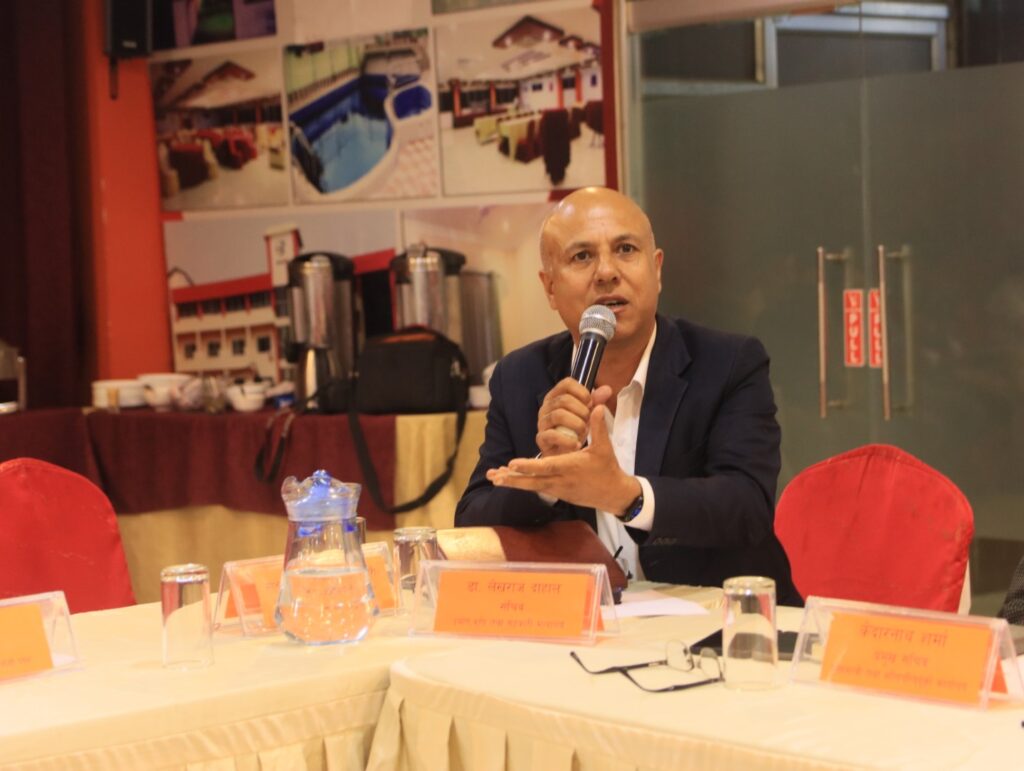
Addressing the concerns raised by the private sector, Mr. Lekhraj Dahal, Secretary of the Ministry of Industries, Agriculture, and Cooperatives, shared about the enactment of Provincial “Industrial Business Legislation 2080”, which indicated the government keen on streamlining business operations. Additionally, he also stated that efforts have been made to simplify the regulation process for small and micro industries digitally from the Small and Cottage Industries Department.
Mr. Laxmi Prasad Bhandari, Secretary of Internal Affairs and Law Ministry of Koshi Province provided insights into the finalization of the “Functional report” of three levels of government. He said that this report shall provide more clarity and efficiency in governance across the different levels. He also shared that simplification and cost-effectiveness in entry, operation, and exit procedures have been in priority of the Ministry.

Mr. Saroj Koirala, Director of the Provincial Investment Authority, shared about the infrastructure projects priorities of the province, including international-level exhibition and conference hall in Biratnagar. Then, the Attorney General of Koshi Province, Hon. Rupesh Koirala underscored the role of stakeholder dialogue in producing actionable insights. He stated that even in cases where the province lacks the necessary authorities, it can nevertheless acquire information from the dialogue and apply pressure on the central government to take appropriate action. Furthermore, he also highlighted the need for coordinated action between government and private sectors.
In his remarks, Hon. Shamsher Rai, Internal Affairs and Law Minister of Koshi Province said “We remain readily available to enact laws and business policies that are advantageous to business operators and to offer security to them.”

At the end of the event, Hon. Kedar Karki, the Chief Minister of Koshi Province, shared several proactive initiatives for improving the business environment of Koshi Province. As a concrete step towards simplifying regulatory processes and enhancing service delivery for businesses, he shared about the establishment of a one-door service center and industry-friendly room in the Chief Ministry Office. He also talked about the government’s commitment to monitoring subsidy allocations to ensure transparency and accountability. He reflected on his willingness to adapt and refine government policies saying “I’m always open to feedback and suggestions from business operators and entrepreneurs and easing the policies with the evolving needs for the business community.
The chairman of the program, Mr. Bhesha Prasad Dhamala delivered his closing remarks and ended the event. The session ran for 2 and half hours followed by dinner.

